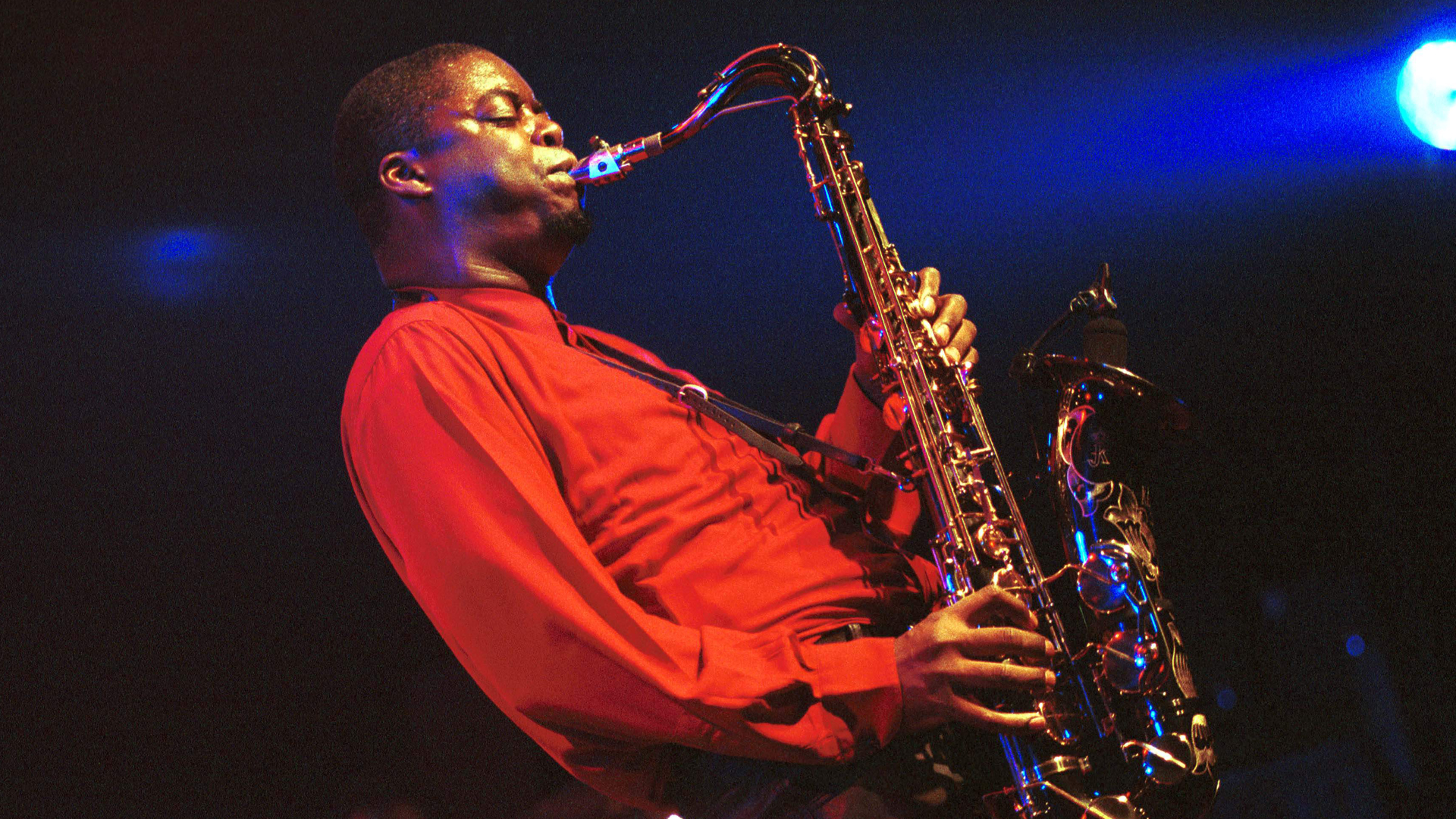In 1996, when I was 11, I stayed up late to watch the Mercury Music Prize ceremony. Pulp, Oasis, and Manic Street Preachers were nominated, alongside the War Child Help compilation, which featured both Oasis and Manic Street Preachers and was obligatory to every CD shelf of the era.
Back then scruffy, stand-offish guitar music was king, but the Mercurys always reserved one nomination for what the music press would term the ‘token jazz album’. I remember Pulp’s Different Class, which I had on cassette and adored, being named the winner. However, any memory I have of the band receiving their gong is clouded out by Courtney Pine’s performance of the 37th Chamber, from his album Modern Day Jazz Stories, the ‘token jazz’ selection that year. I can look back and pinpoint the plastic of my pre-teen brain being stretched and remoulded watching Courtney blow his horn. His magnetism and the track’s mesmeric catchiness made me question why guitars always seemed to come first. Modern Day Jazz Stories replaced Pulp in my Walkman. When Courtney came to the Mean Fiddler in Dublin the following year, I begged my mum to take me. We waited hours, he eventually strolled on stage just after midnight, appearing like a beacon under the smoke and blue lights. I was awestruck. My first late-night jazz gig.
UK jazz has been edging in from the peripheries for many years now. We hear Ezra Collective and Sons of Kemet soundtracking mainstream TV. We see Nubya Garcia in the pages of Vogue. Scruffy indie bands have taken a back seat to swing and syncopation on festival line-ups and radio playlists, and the notion of jazz tokenism now seems distant and ludicrous.
Various cultural factors account for this steady infiltration, but much of it can be traced back to one source – a musical training ground and educational institution called Tomorrow’s Warriors. Founded by bassist Gary Crosby OBE and pianist and vocalist Janine Irons MBE, Tomorrow’s Warriors have been running development programmes for young jazz musicians, free of charge, for the past 30 years.
From the start, Crosby and Irons were determined to create the kind of atmosphere that allowed young artists to express themselves fearlessly on their instruments, solo and in collaboration. They think of it as a musical youth club, where equality is a given, humility is essential and egos are kept in check.









